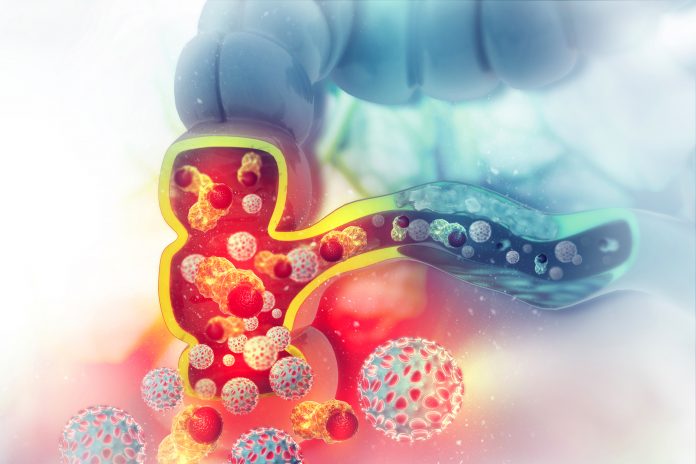
Previous studies have demonstrated that long-term daily use of aspirin can help to delay the development and progression of colorectal cancer (CRC) but the mechanisms involved have not been fully understood. Now, researchers at the University of Padova have discovered aspirin may exert these protective effects by boosting certain aspects of the body’s immune response against cancer cells.
The team analyzed clinical and pathological data from patients who had undergone surgery for their CRC, and also carried out studies using CRC cell lines. Their findings, published in Cancer and led by Marco Scarpa MD, PhD, of the University of Padova, suggest that “regular aspirin use may have an active role in enhancing immunosurveillance against CRC.”
“The inhibition enzymes that perpetuate proinflammatory signals, such as prostaglandin‐endoperoxide synthase 1 and COX‐2 (prostaglandin-endoperoxide synthase 2), are considered the main chemopreventive mechanisms in aspirin users,” the authors noted. “However, previously studies have shown that besides the “classical inhibition of the carcinogenetic COX-2 pathway,” regular use of aspirin is associated with an increase of tumor-infiltrating lymphocytes (TILs), “… and the implication of these observations is potentially crucial to increase the effect of immunotherapy or to enhance the effect of standard chemotherapy.”
To investigate the effects of aspirin on colorectal cancer, the researchers obtained tissue samples from 238 patients who underwent surgery for colorectal cancer in 2015–2019. Of these, 12% were aspirin users. Patients were enrolled in the METACCRE section of the IMMUNOlogical microenvironment in the REctal Adenocarcinoma Treatment (IMMUNOREACT 7) multicenter observational study. The study was mainly carried out at the University Hospital of Padova.
The analyses showed that, compared with tissue samples from patients who did not use aspirin, samples from aspirin users showed less cancer spread to the lymph nodes and higher infiltration of immune cells into tumors.
The team’s analyses of colorectal cancer cells in the lab also showed that exposing the cells to aspirin caused increased expression of a protein called CD80 on certain immune cells, which enhanced the capacity of the cells to alert other immune cells of the presence of tumor-associated proteins. Supporting this finding, the researchers found that in patients with rectal cancer, aspirin users had higher CD80 expression in healthy rectal tissue, suggesting a pro-immune surveillance effect of aspirin. They also carried out tests in cell lines. “ … in silico data from an external cohort and our in vitro experiment showed that aspirin treatment of CRC cells can upregulate the expression of CD80, enhancing the capacity of these cells to actively present tumor antigens to T cells.”
Reporting on their collective studies, the team stated, “In conclusion, our data suggested that aspirin use may be associated with a lower grading and nodal metastasis rate and a higher TILS infiltration in patients with CRC … Our data might strengthen the hypothesis that the mere pharmacological inhibition of COX, mediated by aspirin can enhance the TILs infiltration within the tumor microenvironment.”
The researchers noted that their study shows a complementary mechanism of cancer prevention or therapy with aspirin besides its classical drug mechanism involving inhibition of inflammation. The researchers say that the next step is to explore ways to guarantee that aspirin reaches the colorectal tract in adequate doses to be effective.













